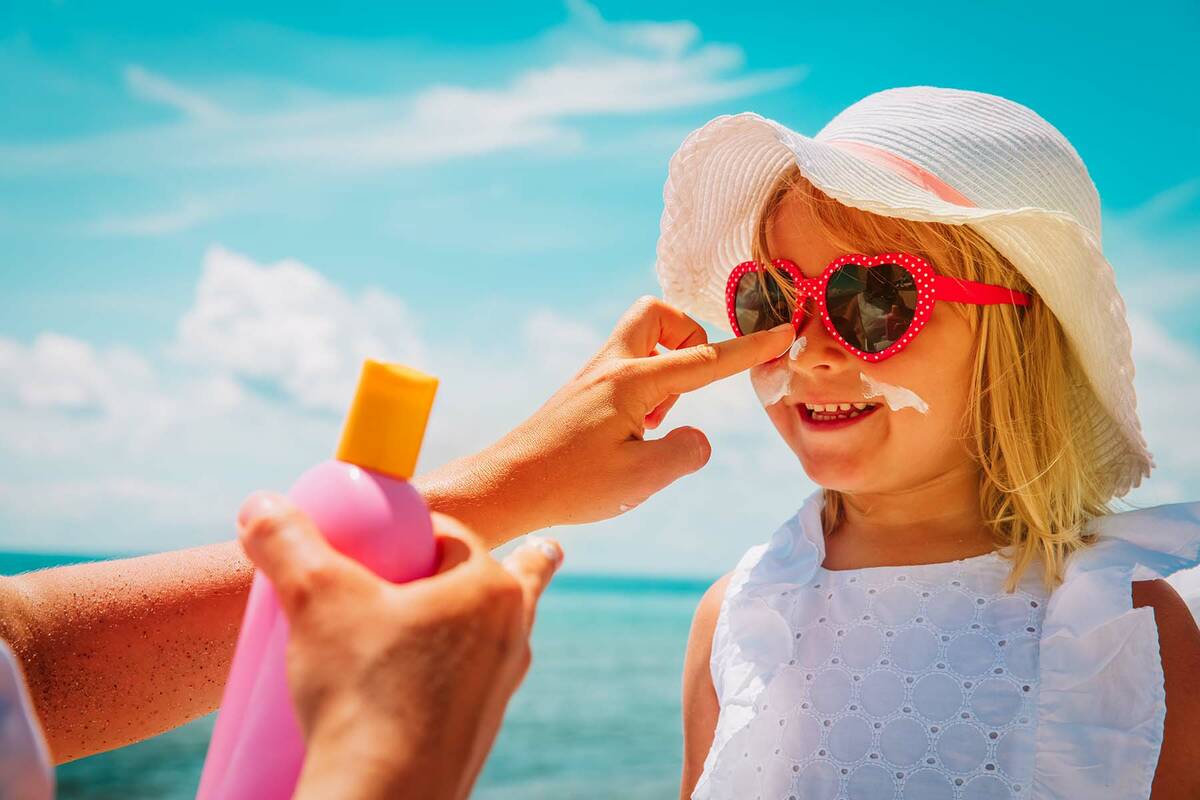
It’s a safe bet that the one thing we all have in common every summer is managing the extreme heat and our body’s reaction to the excessive temperature prevalent in our geographic location.
Our summer brings with it an increase in the risks of dehydration, light-headedness, headache, confusion, reduced sweating and other symptoms, which may be indicative of heat stroke. Extreme heat affects all ages and our pets, too. It’s important we take preventive steps to ensure a safe and healthy summer season.
The Centers for Disease Control and Prevention defines ultraviolet radiation as a form of nonionizing radiation emitted by the sun and artificial sources, such as tanning beds. Ultraviolet light can provide a source of vitamin D, however UV radiation can cause health risks.
Sunburn is a sign of short-term overexposure. Premature aging and skin cancer are side effects of prolonged UV exposure. Some oral and topical medicines, such as antibiotics, birth control pills and benzoyl peroxide products, as well as some cosmetics, may increase skin and eye sensitivity to UV. UV exposure increases the risk of potentially blinding eye diseases, wear eye protection.
Overexposure to UV radiation can lead to serious health issues, including cancer. Skin cancer is the most common cancer in the U.S. The two most common types of skin cancer are basal cell cancer and squamous cell cancer. Basal and squamous cells form on the head, face, neck, hands and arms because these body parts are the most exposed to UV radiation. Most cases of melanoma, the deadliest kind of skin cancer, are caused by exposure to UV radiation.
Did you know that asphalt can reach temperatures 40-60 degrees hotter than the outside temperature or that concrete gets hotter than most other materials, reaching 175 degrees Fahrenheit on an 80-degree day. Those are some serious temperatures for the bottoms of our feet and our pets’ paws.
When the temperature is 117 degrees outside, the inside of a car reaches 150.5 degrees Fahrenheit within 29 minutes. The temp in a car reaches 161 degrees after 90 minutes. Leaving children or pets in locked cars can result in severe health issues, including death.
There are other accidents and injuries that often happen during the summer.
The Centers for Disease Control reports that drowning is the leading cause of accidental death for children between ages of 1 and 4. Almost 400 deaths per year are attributed to drowning in a pool or spa, according to the U.S. Consumer Safety Administration. Even more concerning, almost half of all drowning deaths in young children occurred at a private residence. Drownings involving children under the age of 15 increase dramatically around the Fourth of July holiday week.
Overexposure to our high temperatures can lead to heat cramps, heat exhaustion and heat stroke. Drink plenty of fluids during outdoor activities and sunbathing. Protect yourself with sunscreen that has at least a sun protection factor of at least 15; wear sunglasses, a hat and use an umbrella.
About 16,000 people go to the emergency room each year due to an accident tied to grilling. Roughly 50 percent of those accidents are burns caused by fire or contact. One third of the contact burn injuries are children under age 5 who get hurt when they bump, touch or fall on a grill or hot coals.
On average, according to the U.S. Consumer Product Safety Commission, more than 9,100 fireworks-related injuries were treated in U.S. emergency rooms from mid-June to mid-July.
Considered one of the deadliest holidays to drive, autoinsurance.org reports an average of 450 fatal crashes during the Fourth of July holiday period in the U.S.
One-third of all boating accidents happen on three holidays: July 4th, Memorial Day and Labor Day. Eighty percent of those who perished in a boating accident were not wearing life jackets.
Avoid overexposure. Take the necessary precautions during our extreme summer months. Stay safe. Stay hydrated. Protect yourselves, loved ones, and pets.
For more information on radiation and your health, visit https://www.cdc.gov/niosh/topics/sunexposure.
To Your Health is provided by the staff of Boulder City Hospital. For more information, call 702-293-4111, ext. 576, or visit bchcares.org.